
Maingaining: How to Build Muscle Without Gaining Fat
Maingaining is when you slowly build muscle without gaining fat. It’s usually set in opposition to bulking, where you eat in a calorie surplus to support muscle growth. Bulking is a more powerful, reliable way to build muscle, but it often comes at the cost of gaining body fat. Maingaining is supposed to solve that problem.
Up until a few years ago, “maingaining” was called “gaintaining.” I think it was Greg Doucette who flipped it around, and he caused enough controversy that it became the more popular term. The controversy had less to do with maingaining and more to do with the false claims he made to sell his fake turkesterone supplements.
Still, much of the internet’s ire landed on maingaining. Some argued it didn’t work. Most argued that it was a confusing way of combining body recomposition (where you build muscle while losing fat) with lean bulking (where you bulk slowly and leanly).
However, both body recomposition and lean bulking can work quite well. Combining them both together can be quite effective, especially under some circumstances.
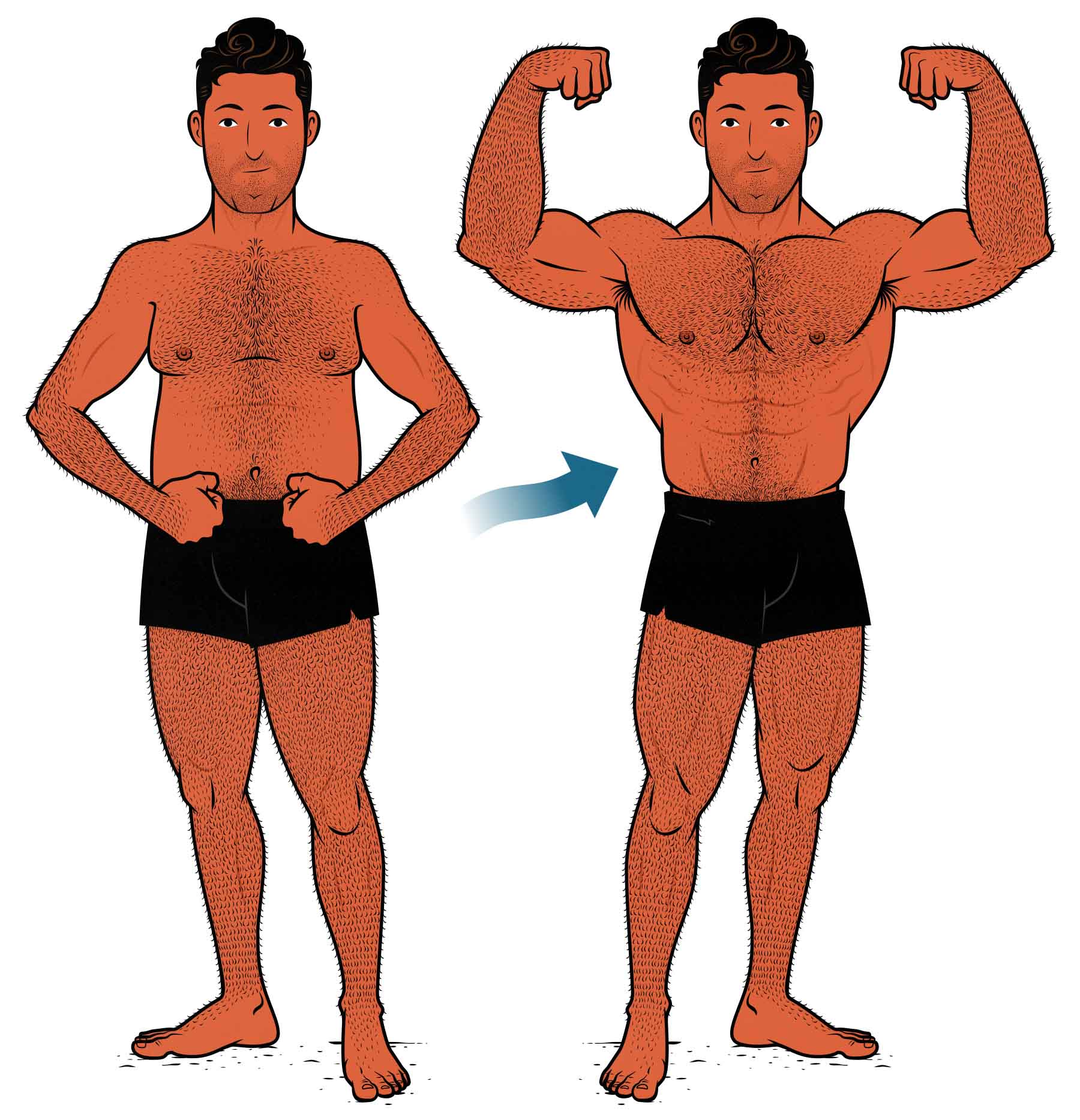
Should You Maingain?
Maingaining Is Amazing for Overweight Beginners
Maingaining works best when you have extra body fat you can use for energy. The less body fat you have, the more your body will want to preserve it, and the harder it will be to build muscle without eating in a calorie surplus.
A few years ago, Greg Nuckols and Eric Trexler got into a p-ratio debate with Mike Israetel and Menno Henselmans. Israetel and Henselmans argued that being fat reduced insulin sensitivity (true!), increased chronic inflammation (true!), and reduced testosterone production (also true!), causing overweight people to gain less muscle and more fat.
However, none of those downsides were strong enough to overcome the muscle-building benefits of having immense amounts of energy stored as body fat. In fact, most overweight beginners—the people with the worst insulin sensitivity, the most inflammation, and the least testosterone—can build muscle while losing fat (meta-analysis):
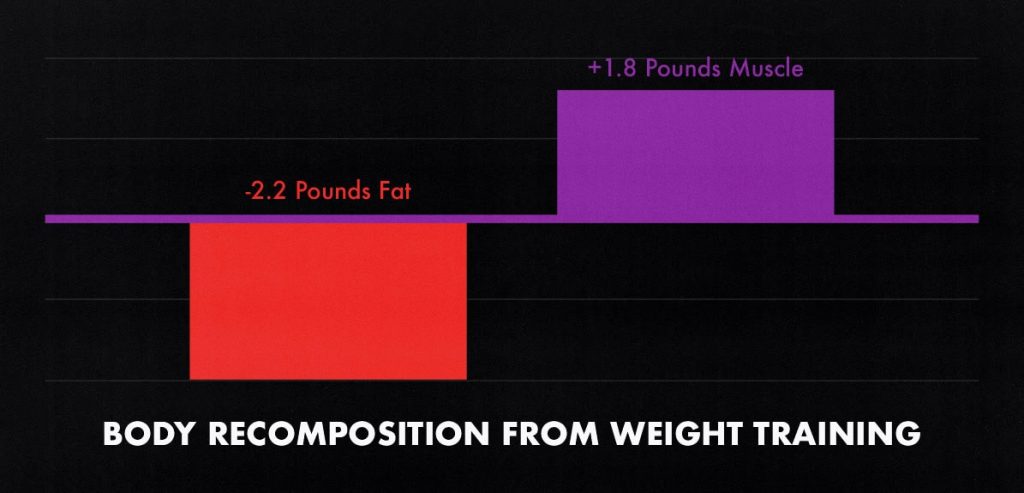
Then, as these overweight people recomp, their insulin sensitivity, inflammation, and testosterone production all improve, and yet it gets harder to keep building muscle leanly.
Nuckols and Trexler won the debate (article). Israetel and Henselmans admitted defeated and updated their recommendations. And since then, even more research has come out showing that being overweight allows for leaner muscle growth. For example, in a new study by Ogawa and colleagues obese young sumo wrestlers (averaging 33% body fat) gained 4 pounds of lean mass in 6 months without gaining any fat.
Maingaining Might Not Get You Lean
When you think of someone who bulks, you might think of someone who gains too much fat and becomes overweight. And when you think of someone who maingains, you might think of someone who’s perpetually lean.
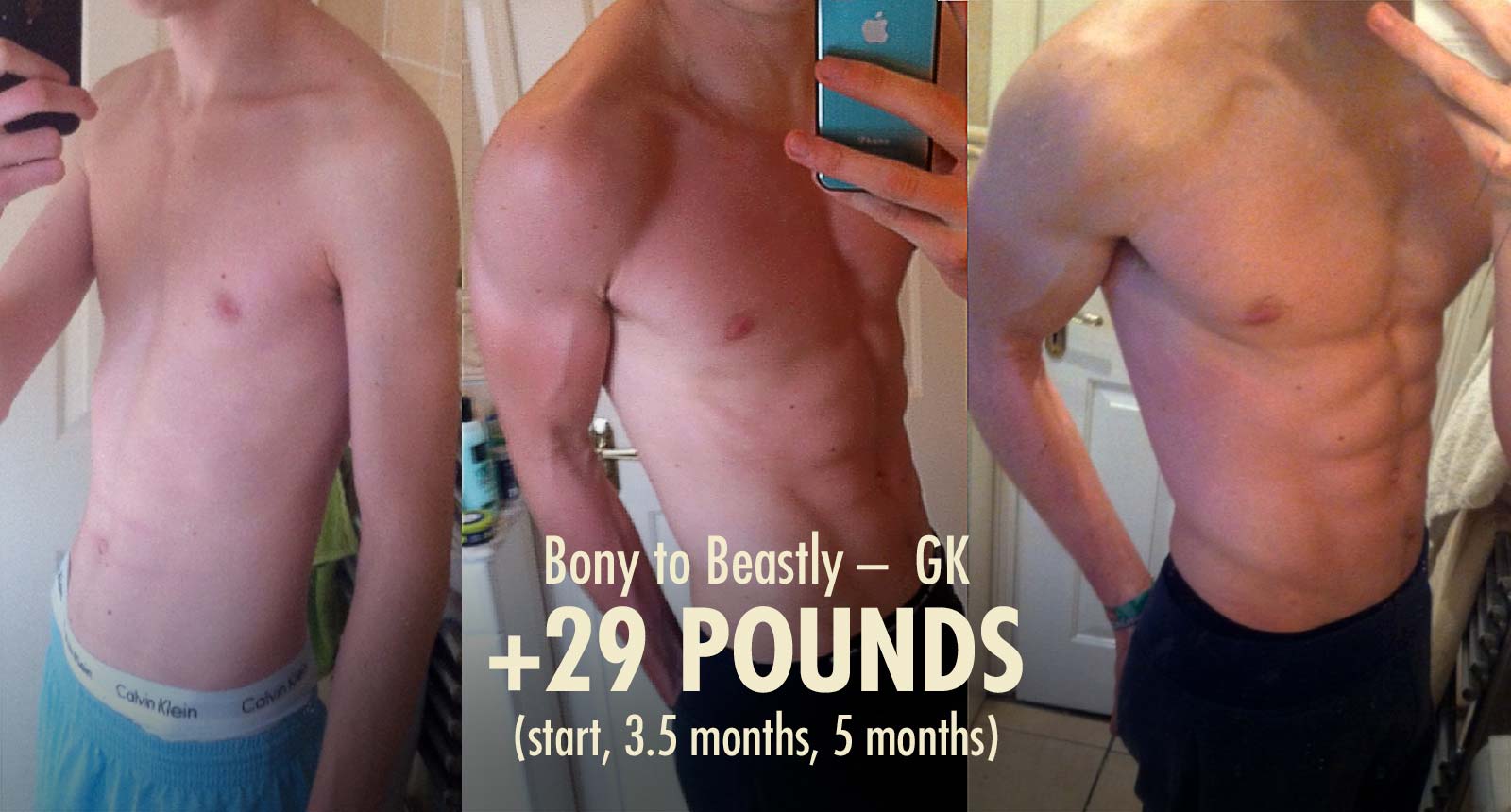
That isn’t really the right way to think of it. The people who benefit the most from bulking aggressively are naturally thin, and they tend to stay fairly lean while they bulk. I’ve gained 70 pounds from bulking fairly aggressively, and I’ve never been very fat:
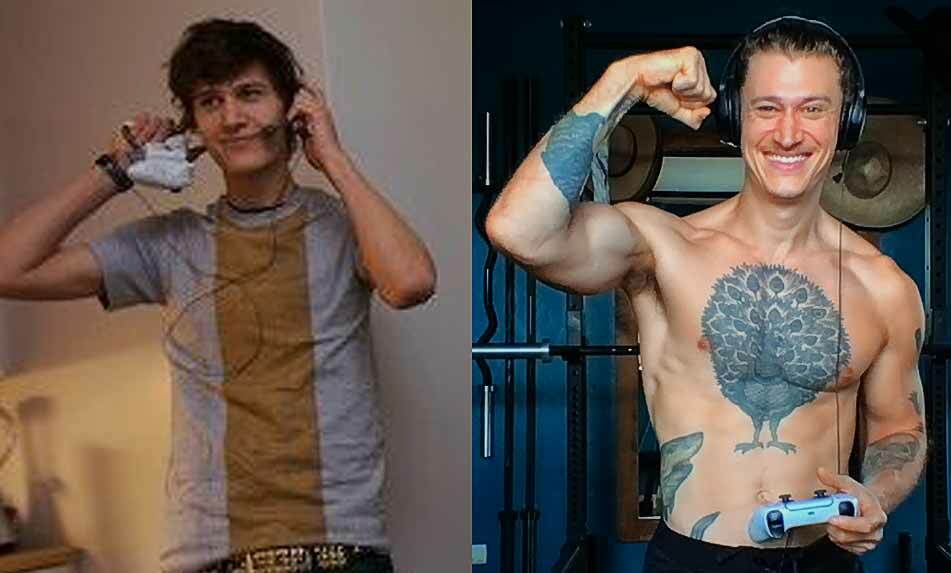
The people who benefit the most from maingaining are skinny fat or overweight beginners. Maingaining is good for burning away some fat, but it might not be powerful enough to get you as lean as you’d like to be. Your body might start defending your body fat before you get under 20% body fat, forcing you to dip into a calorie deficit to burn off the last 10–20 pounds.
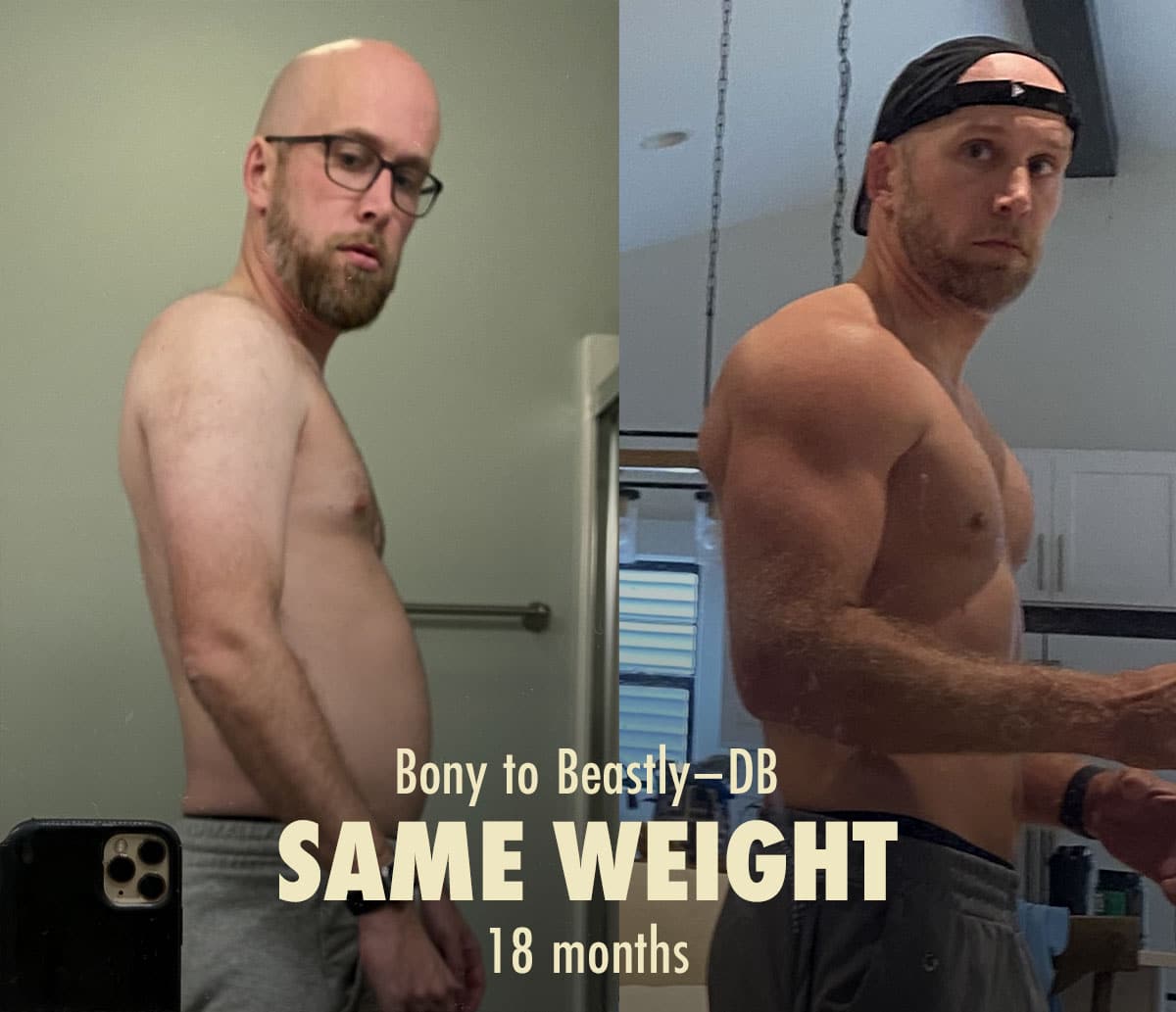
You can find examples of leaner, more advanced lifters who get good results from maingaining. It isn’t impossible, and we’ll talk about how to do it, but it isn’t the holy grail some claim it to be. That’s why it’s so harshly criticized—because of Greg Doucette’s exaggerated claims.
Maingaining Isn’t for Thin People
If you’re skinny or lean, your body won’t want to burn what little fat you have. You’d be burning the last of your precious reserves, leaving nothing for an emergency. Admittedly, that emergency may never come. I doubt you’ll ever suffer through a famine. But your body doesn’t know that.
So, you’ll need to get your extra calories from eating extra food. That’s where maingaining gets confusing. The claims often go something like this:
- You only need 800 calories to build a pound of muscle. That’s true, but your metabolism isn’t static. If you add 100 calories to your diet, your body might start burning 100 more calories. For example, you might have a little more energy, spending a bit more time walking or standing instead of sitting or lying down.
- You can only build a pound of muscle every month or two. That’s true for advanced lifters, but beginners can often gain several pounds of muscle per month. Skinny beginners can usually build muscle quite a bit faster.
- You only need 27 extra calories per day to gain a pound per month. It isn’t possible to get into a consistent calorie surplus of 27 calories per day. 27 calories is a few extra steps, a small morsel of food, or a few drops of oil in pain. And even if you tracked everything perfectly, your metabolism can adapt.
Here’s a simple example. When someone wants to track their calories, we usually recommend Macrofactor (full review here). What makes it special is that it adjusts its calorie recommendations based on how your weight changes, making it far more reliable than any other calorie-tracking app.
However, Macrofactor encourages people to bulk quite leanly, so the calorie surpluses it recommends are quite small. When skinny “hardgainers” use it, our metabolisms adapt faster than the algorithm adds calories, so we don’t gain weight. We can fix that by overshooting our calorie goal by 100–200 calories.
I told Greg Nuckols about this, and he’s updating the algorithm so that it recommends larger calorie surpluses. It takes 800 extra calories to gain a pound of muscle on paper, but in reality, it usually takes quite a bit more (often more like 2,000–3,000 calories). And if you’re eating that many extra calories per month, most people would call that a lean bulk. You aren’t really maingaining anymore.
Phase 1: Maingaining for Body Recomposition
If you’re maingaining without eating in a calorie surplus, then you need to burn body fat to build muscle (body recomposition). One pound of fat (3,500 calories) can fund about four pounds of muscle growth (which takes about 800 calories per pound).
Body recomposition works best when you’re:
- Overweight
- New to lifting weights
- Regaining lost muscle mass
- Training for muscle growth
- Eating a good diet
- Eating enough protein
- Getting enough sleep
You don’t need to worry about calories (yet). The results you get from body recomposition aren’t driven by the calories you eat, so focus on eating a good diet and eating enough protein. Listen to your appetite. Eat a comfortable amount of food.
You can weigh yourself every week, but small fluctuations in body weight are perfectly fine. Remember, burning one pound of fat can fuel a few pounds of muscle growth (study), so you’ll gain weight if you eat at true maintenance. It’s okay if you’re eating in a slight surplus or deficit, though.
If you want to track your calories, that’s perfectly fine. We have a calorie calculator here. Just make sure to eat a good diet and get your macros about right.
You’ll know it’s working if you’re able to make progress in the gym. If you’re able to add weight or reps to your exercises over time, that shows you’re improving. If you’re new to lifting weights, some of those strength gains will come from improving your technique and coordination. But new lifters are also more likely to be able to recomp, so you don’t need to worry too much. You’ll probably make progress, at least for a time.
When you stop gaining strength, recomping isn’t working anymore. Your body doesn’t want to burn more fat to build more muscle. You’ll need to eat slightly more food. Let’s talk about how to do that.
Phase 2: Maingaining for Muscle Growth
If you’re eating in a small calorie surplus to fuel muscle growth, you could call that a lean bulk. Maingaining is the very leanest of lean bulks. It’s pretty typical to gain 0.2–0.5 pounds per week while lean bulking, but you might aim for even slower rates of weight gain.
The idea isn’t really to gain weight. It’s too hard to track such small changes. You’d need to maingain for several months before your muscle growth is more than your random fluctuations in body weight. The signal isn’t powerful enough to cut through the noise.
So, instead of eating enough to gain weight, focus more on eating enough to fuel progress in the gym. If you hit a plateau, buff up your diet a little bit. It might not take much. An extra teaspoon of olive oil on your veggies is 40 calories. A banana is 90 calories. A protein shake is 120.
Eating in a daily calorie surplus isn’t possible, even if you diligently use the very best calorie-tracking app. If you spend a few more minutes walking than usual, you might burn off the extra calories you’re eating. If you leave a bit of oil in the pan, you might slip into a small calorie deficit. And if your metabolism adapts, it can easily gobble up small amounts of extra food. It’s much too finicky. That’s one of the main downsides of maingaining.
However, you can eat a monthly or yearly calorie surplus. Your progress won’t be steady. You’ll be shifting in and out of muscle growth. On some days, you’ll build muscle. On other days, you might lose a bit of muscle. But over time, you’ll get stronger. If you aren’t getting stronger, keep gradually eating more food until you are.
The Argument for Lean Bulking
If the results you get from maingaining are too inconsistent, or if you want to build muscle faster, then you can speed up your rate of muscle growth by eating more food and gaining weight faster.
There are a few advantages to eating more food:
- It’s easier to stay in a (slightly) larger calorie surplus. Trying to eat 40 calories over maintenance is virtually impossible, but trying to eat 200 calories over maintenance is pretty realistic. Even if you occasionally undereat or overmove by 200 calories, you won’t slip into a deficit. Even if you occasionally overeat by 200 calories, you won’t be in such a huge surplus that you’ll gain very much fat.
- A larger calorie surplus allows for faster muscle growth. Your workouts are what stimulate muscle growth, so the best way to stimulate more muscle growth is with a more rigorous, vigorous workout program. But eating more food will help your body turn that stimulus into far more muscle.
- You won’t lose muscle. You won’t occasionally slip into a calorie deficit, so your hormones will stay primed for muscle growth, and you won’t spend days or weeks breaking down muscle tissue.
The elephant in the room, of course, is that you could become the elephant in the room. If you aren’t careful, some of the extra calories you’re eating can spill over into fat gain. You won’t gain much fat, and it won’t be sudden, but it can very gradually accumulate. There may come a time when you need to spend a few weeks cutting it off.
I’m not sure what’s right for you. I want you to lift weights, be active, eat a great diet, and be healthy. But I don’t care if you fully maximize your rate of muscle growth. I’m not trying to convince you to bulk. I just want to make sure that if you do want to bulk, you know why, when, and how to do it:
- Why: Bulking makes it much easier to build muscle, and you’ll build muscle faster.
- When: You only need to start bulking when you want to progress past a size/strength plateau.
- How: We have a full article about how to lean bulk.

Alright, that’s it for now. If you want us to walk you through the process of building muscle, losing fat, or doing both at once, check out our Bony to Beastly Program or Outlift Intermediate Hypertrophy Program. Both of them include a full workout routine, diet guide, and lifestyle recommendations. We’ll also give you a recipe book full of nutritious meals with all of the calories and macros calculated out for you. And they include coaching from us in our online community.
Shane Duquette is the founder of Outlift, Bony to Beastly, and Bony to Bombshell, each with millions of readers. He's a Certified Conditioning Coach (CCC), has gained 70 pounds, and has over a decade of experience helping more than 15,000 people build muscle. He also has a degree in fine arts, but those are inversely correlated with muscle growth.
